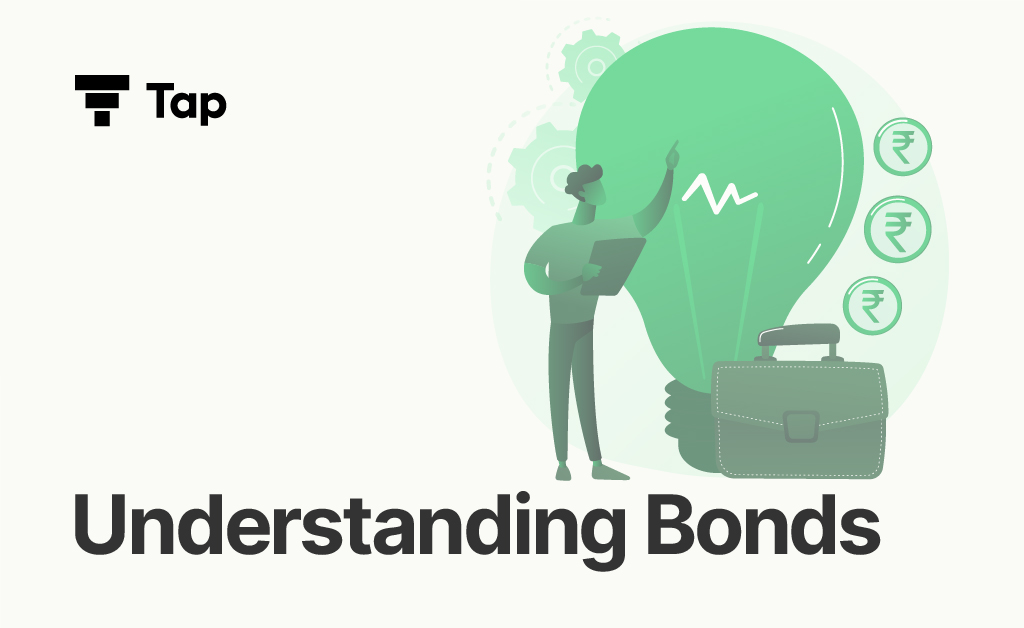Decoding India’s Bond Market: Exploring The Types Of Bonds

Bonds are a popular investment choice for individuals seeking regular income, capital preservation, and portfolio diversification. In simple terms, a bond is a loan agreement between a borrower and a lender. When you buy a bond, you essentially lend money to the issuer for a specified period, during which the issuer promises to repay the amount and an agreed-upon interest rate.
Types of Bonds
Bonds come in various types, each with its features and benefits. Here are some common types of bonds:
Treasury Bonds: Issued by the central government, these are considered the safest type of bond as they carry no credit risk.
Municipal Bonds: Used by local and state governments to fund projects like schools and hospitals, these bonds are often tax-exempt.
Corporate Bonds: Issued by companies to raise capital for business operations, these carry higher risk but offer potentially higher returns.
High-yield Bonds: Also known as junk bonds, these bonds offer higher yields but come with greater risk due to lower credit ratings.
Mortgage-Backed Securities: Created by pooling mortgages, these bonds are backed by the cash flow from mortgage payments.
Floating Rate Bonds: Their interest rates adjust periodically based on market rates, offering protection against interest rate risk.
Zero-Coupon Bonds: Sold at a discount to face value, these bonds pay no periodic interest but offer a fixed return at maturity.
Callable Bonds: Issuers have the option to redeem these bonds before maturity, introducing reinvestment risk for investors.
Convertible Bonds: These bonds can be converted into shares of the issuing company’s stock, offering potential for capital appreciation.
Inflation-Protected Bonds: Designed to protect investors from inflation, these bonds adjust their interest rates based on changes in the Consumer Price Index.
Features of Bonds
Bonds come with several key features that distinguish them from other investments:
Interest Rate: The rate at which the issuer pays interest to bondholders.
Maturity Date: The date when the issuer repays the bond’s principal amount.
Face Value: The amount the issuer will pay at maturity.
Yield: The rate of return on a bond, considering both the coupon rate and market price.
Credit Rating: Indicates the issuer’s creditworthiness and likelihood of default.
Liquidity: The ease with which bonds can be bought or sold in the secondary market.
Advantages of Bonds
Investing in bonds offers several benefits:
Steady Income: Bonds provide a predictable income stream through periodic interest payments.
Diversification: Bonds help diversify a portfolio, reducing overall risk.
Lower Risk: Bonds are generally less risky than stocks, with higher priority in repayment.
Predictability: Bonds offer fixed terms and interest rates, making them predictable investments.
Issuer Flexibility: Bonds can be customised to meet the specific needs of issuers.
Limitations of Bonds
Despite their advantages, bonds also have limitations:
Interest Rate Risk: Bond prices can fall when interest rates rise, leading to potential investor losses.
Inflation Risk: Inflation can erode the purchasing power of bond returns over time.
Credit Risk: Bonds are subject to default risk if the issuer fails to repay the principal or interest.
Liquidity Risk: Some bonds may be difficult to sell quickly, especially if they are not traded frequently.
Limited Capital Appreciation: Bonds offer limited potential for capital gains compared to stocks.
Bonds play a crucial role in the financial system, providing a means for governments and companies to raise capital. With various types of bonds available, investors have options to suit their risk tolerance and investment objectives. While bonds offer stability and income, they also come with risks that investors should carefully consider. By understanding the features, advantages, limitations, and factors to consider, investors can make informed decisions when investing in bonds.
Frequently Asked Questions (FAQs) About Bonds
What is a bond?
A bond is a debt investment where an investor lends money to an entity (typically a government or corporation) for a specified period at a fixed or variable interest rate.
How do bonds work?
When you buy a bond, you are essentially lending money to the bond issuer. In return, the issuer agrees to pay you interest at regular intervals and repay the principal amount at maturity.
How do I buy bonds?
Bonds can be purchased through various channels, including banks, post offices, online trading platforms, and mutual fund companies. Investors can also buy bonds directly from the issuer in the primary market or from other investors in the secondary market.
How are bond prices determined?
Bond prices are influenced by factors such as interest rates, credit ratings, inflation expectations, and market demand. Generally, bond prices move inversely to interest rates.
